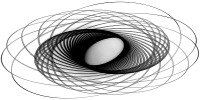Artificial intelligence is concerned with the design and analysis of autonomous systems. These are software systems and/or physical machines, with sensors and actuators, embodied for example within a robot, an autonomous spacecraft or a computer controlled game character. An intelligent system has to perceive its environment, to act rationally towards certain goals, and to interact with other entities like human beings.
An intelligent system has to deal with real world environments where often only imprecise and incomplete information is available. It has to be equipped with appropriate capabilities in order to do the right thing required to achieve its goals. This module addresses the design and analysis of control mechanisms for such systems and how to build suitable models of the environment to enable such control. Moreover, it explores which capabilities can be realised by the different designs. Topics relating to problem solving by searching, knowledge representation and reasoning mechanisms, planning, uncertain knowledge and reasoning, learning, and sub-symbolic artificial intelligence are covered.
This module is a general introduction to core topics in Artificial Intelligence. It introduces practical tools and techniques for solving problems that are difficult or impractical to solve with other methods, and provides some guidance when to apply such tools. Furthermore, some philosophical issues relating to intelligent systems will be discussed. It is aimed at third year BSc in Computing students in the UK system.
Development
The material to generate the slides, etc. for this course is also available as .tar.gz archives. These are not necessarily the latest sources used to generate the pdf files for this module, but represent complete, stable releases.
![]() This work is licensed under a Creative Commons Attribution-NonCommercial-ShareAlike 4.0 International License.
This work is licensed under a Creative Commons Attribution-NonCommercial-ShareAlike 4.0 International License.
